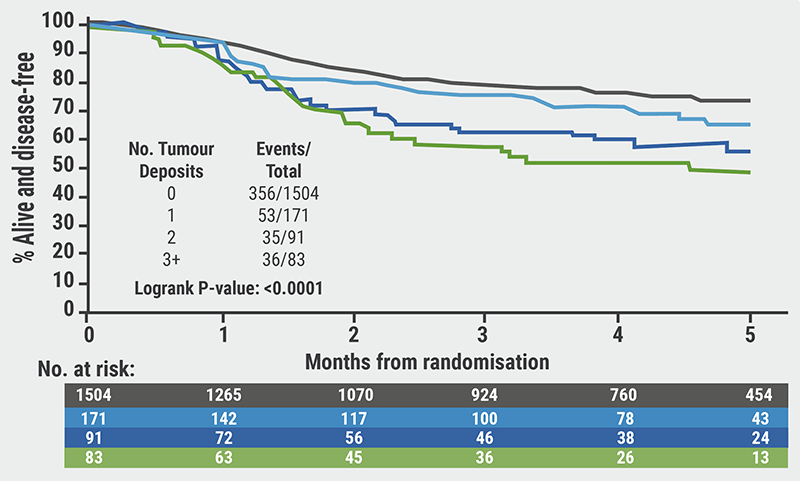An analysis of trial data from 240 patients with morbid obesity who received bariatric surgery and were followed for seven years revealed that those who received laparoscopic Roux-en-Y gastric bypass lost a mean 55% of their excess weight, versus 47% among those who had laparoscopic sleeve gastrectomy. Quality of life scores, however, were virtually the same in the two groups, according to the report published in JAMA Surgery.
"I would perhaps highlight the fact that we have two excellent bariatric surgery procedures with good and sustainable long-term weight loss," said study coauthor Dr. Paulina Salminen, the Sigrid Juselius Professor of Surgery at the University of Turku and Turku University Hospital in Finland.
"We still need more research in order to be able to identify the most optimal procedure for each patient, that is, tailoring bariatric surgery treatment for each individual patient taking into account a number of different parameters," Dr. Salminen said in an email. "Another important message is that better quality of life is associated with better weight loss, which also underlines the need for optimal procedure choice."
To take a closer look at the two types of weight-loss surgery, Salminen and her colleagues turned to data from the SLEEVEPASS study, a multicenter, multi-surgeon, open-label randomized equivalence trial conducted between March 10, 2008 and June 2, 2010 at three hospitals in Finland.
A total of 240 patients aged 18-60 years with morbid obesity were randomly assigned to undergo laparoscopic sleeve gastrectomy or laparoscopic Roux-en-Y gastric bypass. The average age of the patients was 48.4 and 69.6% were women.
Eligibility criteria for the study included a BMI greater than 40 or greater than 35 with a significant obesity-associated comorbidity, and a previous failed adequate conservative treatment. Exclusion criteria included BMI greater than 60, a significant eating or psychiatric disorder, active alcohol or substance abuse, active gastric ulcer disease, severe GERD with a large hiatal hernia, and previous bariatric surgery.
Quality of life was assessed using the Moorehead-Ardelt Quality of Life questionnaire of the Bariatric Analysis and Reporting Outcome System. The total score can range from -3 to 3 points, with a higher score indicating better quality of life.
At baseline, the mean disease-specific quality of life (DSQoL) score was 0.10 in the sleeve group and 0.12 in the bypass group. At seven years, the mean DSQoL score was 0.50 in the sleeve group and 0.49 in the bypass group with no statistically significant difference between the two. Greater weight loss was associated with a higher quality of life score.
"With all of the existing evidence of the good long-term outcomes of bariatric surgery, this also adds up to the fact that these patients need to be referred to active surgical treatment," Salminen said. "This is still a problem in many countries as the number of patients undergoing bariatric surgery is too low compared to the prevalence of morbid obesity, that is, only a small proportion of patients eligible for this efficient treatment are actually treated with bariatric surgery."
Dr. Matthew Pittman welcomed the new study.
"I think it is a really nice study," said Dr. Pittman, a bariatric surgeon and regional director of bariatric surgery at Northwestern Medicine Western Region. "With the rising numbers of gastric sleeve surgeries out there it's good to see outcomes seven years out."
It's important to note that the bypass surgery had more weight loss, Dr. Pittman said. "It will be good to get follow-up data from 15 to 20 years out to see if the gap continues to widen," he added.
SOURCE: https://bit.ly/2IybP0P and https://bit.ly/3n3CKR7 JAMA Surgery, online December 9, 2020.
By Linda Carroll
Posted on
Previous Article
« LVAD centers linked to less mortality from cardiogenic shock Next Article
Study shows no mortality increase if paclitaxel coats peripheral-artery devices »
« LVAD centers linked to less mortality from cardiogenic shock Next Article
Study shows no mortality increase if paclitaxel coats peripheral-artery devices »
Related Articles
April 14, 2020
Pipeline of IBD drugs

January 13, 2022
New data support lowering screening age to 45 for colorectal cancer
© 2024 Medicom Medical Publishers. All rights reserved. Terms and Conditions | Privacy Policy
HEAD OFFICE
Laarderhoogtweg 25
1101 EB Amsterdam
The Netherlands
T: +31 85 4012 560
E: publishers@medicom-publishers.com

